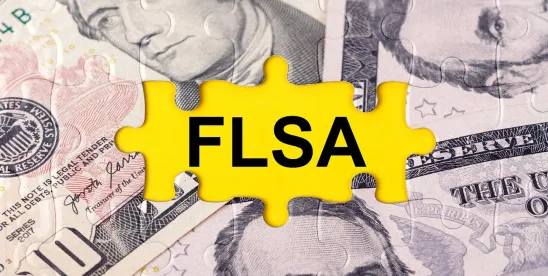As background, the Fair Labor Standards Act (“FLSA”) permits employers to satisfy a portion of their minimum wage obligations (currently $7.25 per hour) to “tipped employees” (defined as “any employee engaged in an occupation in which he customarily and regularly receives more than $30 a month in tips”) by allocating a tip credit toward the minimum wage. Accordingly, the employer can pay an hourly rate as low as $2.13 per hour as long as the employee’s tips make up the difference. However, under the DOL’s “80-20-30” rule, an employee may only spend 20% of their time on directly supporting tip work (for example, a bartender making garnishes or a server rolling silverware). The rule also imposes a 30-minute per shift limit for the amount of time the employee can spend directly supporting tip work.
The unanimous, three-judge panel determined that the rule went beyond the bounds of what Congress intended when it created the FLSA. In so holding, it overturned a contrary decision rendered by the U.S. District Court for the Western District of Texas prior to the Supreme Court’s ruling in Loper Bright Enterprises, et al. v. Gina Raimondo, Secretary of Commerce, et al., which overturned the Chevron deference doctrine. A detailed discussion of the Loper Bright decision and its impacts on various aspects of employment law can be found here, and click here for a recap of the decision from Western District of Texas.
The court determined that the term “engaged in an occupation” looked to the focus on the job as a whole, rather than discrete tasks, and that to be “engaged in an occupation” simply means to be employed. Thus, a waitress who is bussing tables is still a waitress. In creating requirements based on task, the rule was contrary to the FLSA’s text. The court further determined that the rule was arbitrary and capricious for similar reasons.
The decision does not have an immediate impact on retailers outside of Texas, Louisiana, and Mississippi. However, the DOL may challenge the decision and seek a rehearing before the full panel, and ultimately before the United States Supreme Court.





 />i
/>i

